This website uses cookies
We use cookies to ensure that we give you the best experience on our website. If you continue to use this site we will assume that you are happy with it.
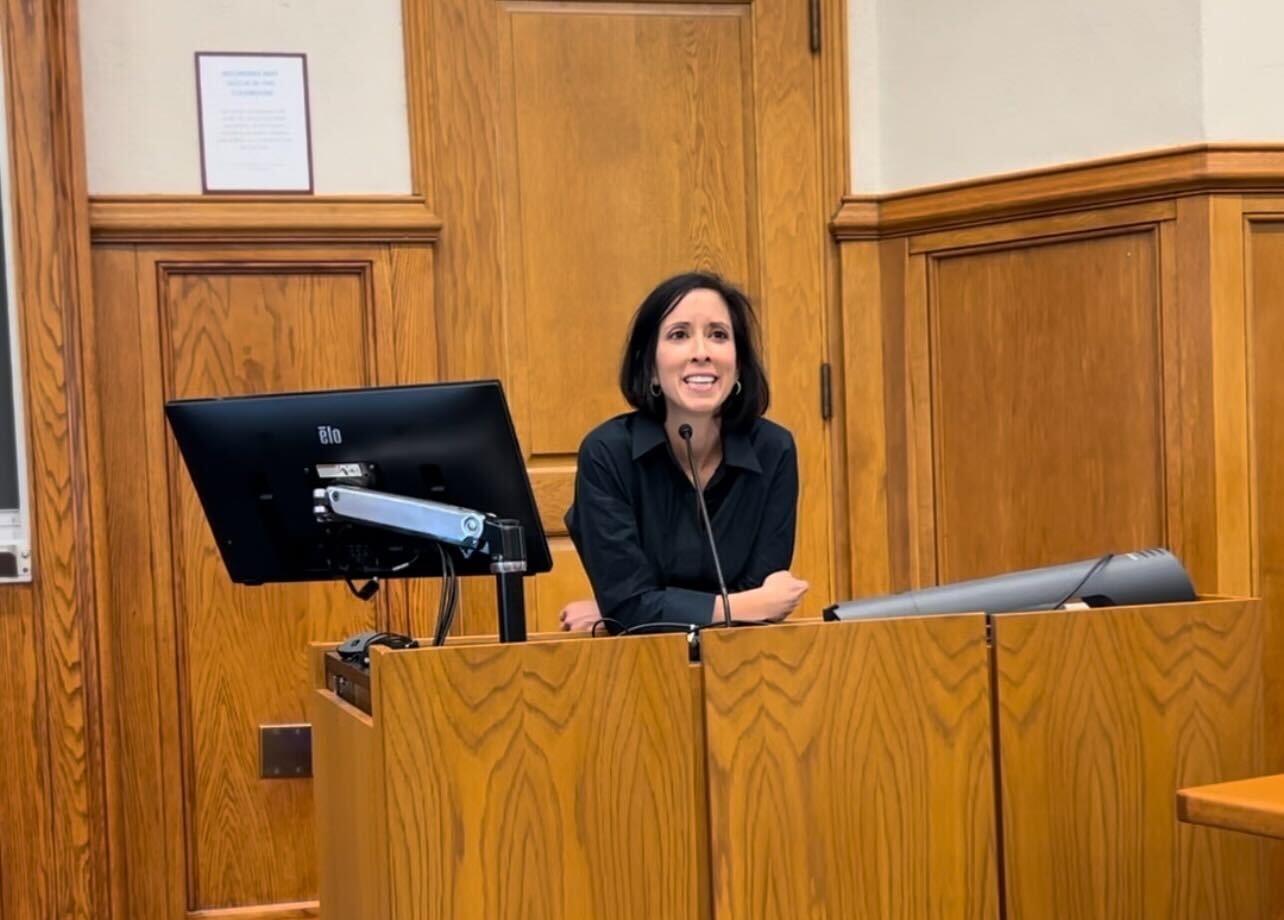
On October 21, Cornell Law School celebrated the launch of Professor Sara Bronin’s latest book, Key to the City: How Zoning Shapes Our World. The event, held in room 182 of Myron Taylor Hall, brought together leading scholars, urban planners, and members of the Cornell Law community to discuss Bronin’s groundbreaking work, which explores the often-overlooked impact of zoning laws on American communities.
The book highlights how zoning decisions have shaped the physical and social fabric of cities across the United States. Drawing on her extensive experience, including her tenure as chair of the Planning and Zoning Commission in Hartford, Connecticut, Bronin argues that zoning can be a powerful tool for fostering sustainable, equitable communities when wielded properly.
During the celebration, Bronin reflected on her motivation for writing the book, recounting a pivotal moment in Hartford when a local activist helped her see the real-world consequences of zoning decisions. Bronin said walking with that activist through a city neighborhood helped her to realize that “people just don’t understand what zoning is doing –even people who have been embedded in their neighborhoods for years.” This lack of awareness, she emphasized, is what Key to the City aims to address.
The event also featured comments from three distinguished panelists: Professor Yun-chien Chang of Cornell Law School; Professor Suzanne Charles from Cornell’s College of Architecture, Art, and Planning; and Andrew Fine, chief of staff and policy director at Open New York. Each speaker emphasized the far-reaching impact of zoning, with Chang highlighting how zoning can promote positive change when handled properly: “If in good hands, like Sara did in Hartford, you can achieve so many good things.”
Chang, the Jack G. Clarke Professor in East Asian Law, emphasized the importance of entrusting zoning decisions to responsible and forward-thinking leaders, as Bronin exemplified in Hartford, where she led reforms to promote equity and sustainability. Chang’s remarks also touched on the historical development of private restrictive covenants and public zoning rules, and how modern zoning practices could be used to correct past injustices.
Suzanne Charles, a professor of architecture and real estate, offered her perspective on how zoning affects urban design, planning, and real estate markets. She noted the “hidden force” of zoning in shaping cities, often in ways that are not immediately visible to the public. Charles praised Bronin’s work for bringing attention to these forces, reciting for the audience a quote from Key to the City: “Zoning codes give us the power to curate what we see, helping us more clearly articulate our cities.” Her remarks echoed the sentiment that Bronin’s book makes zoning accessible to both professionals and the broader public.
Andrew Fine focused on the book’s practical application for housing reform. He lauded Bronin’s optimistic approach and remarked on the growing national attention to zoning. Fine underscored the importance of using zoning reform to address housing shortages, stating that Bronin’s work provides a critical framework for advocates pushing for more equitable housing policies at both local and state levels.
In addition to providing a critical analysis of zoning’s role in creating urban sprawl and economic inequality, Key to the City offers a hopeful vision for the future. Bronin advocates for reforms that can transform zoning into a force for good, enabling cities to become more sustainable and socially just. In her remarks, she pointed out the importance of addressing technical flaws in zoning systems, such as inconsistent mapping and impenetrable jargon, which she and her team are tackling through the National Zoning Atlas project.
Bronin’s book arrives at a crucial moment when zoning is becoming an increasingly hot topic in national and state-level debates on housing and urban development. As the event concluded, Bronin told attendees: “I’m very optimistic for the future. I’m hopeful that with all of this discussion, we can actually move forward and figure out what zoning can do, what it can be, and how we can harness it for good.”
Bronin is an associate member of the Cornell Law School faculty, professor of city and regional planning in Cornell’s College of Architecture Art & Planning, and fellow of the Cornell Atkinson Center on Sustainability.
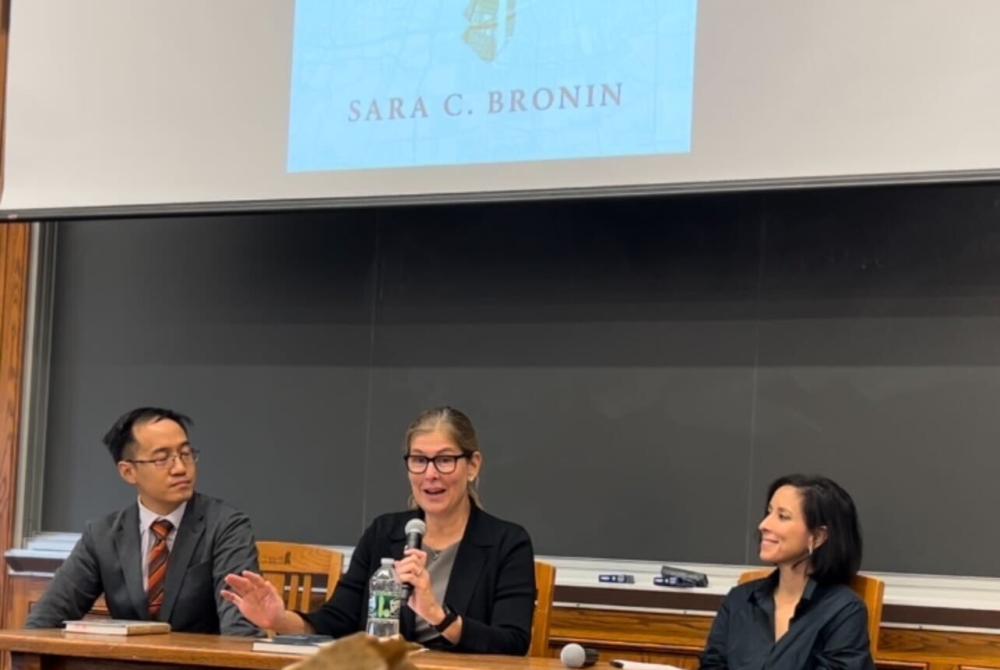
Left to right: Yun-chien Chang, Suzanne Charles, and Sara Bronin.
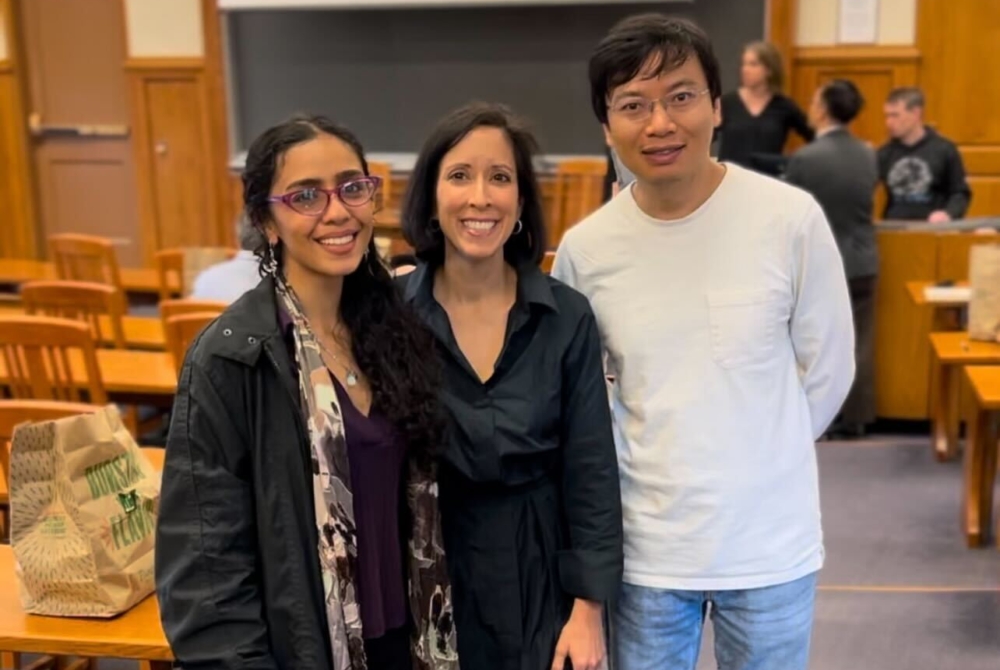
Sara Bronin (middle) posing for a photo with two students.
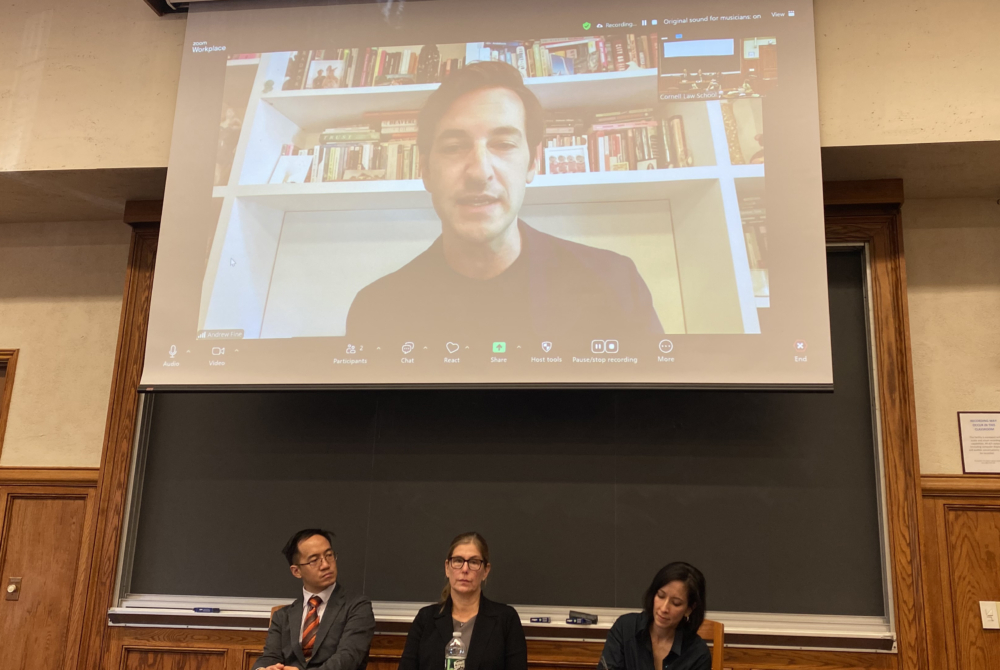
Andrew Fine joins the discussion via Zoom.
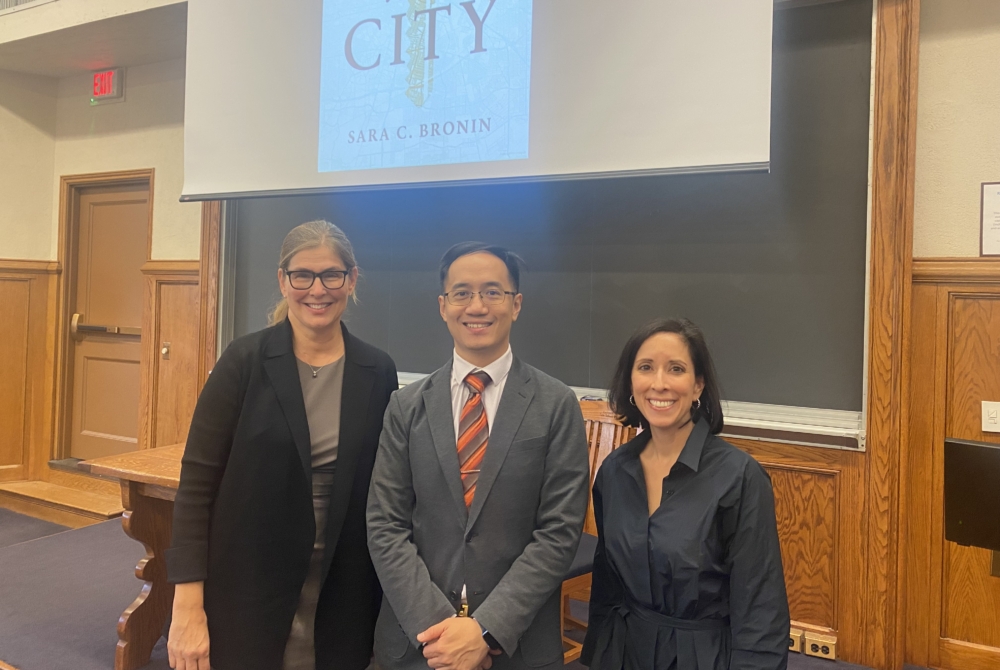
Left to right: Suzanne Charles, Yun-chien Chang, and Sara Bronin.
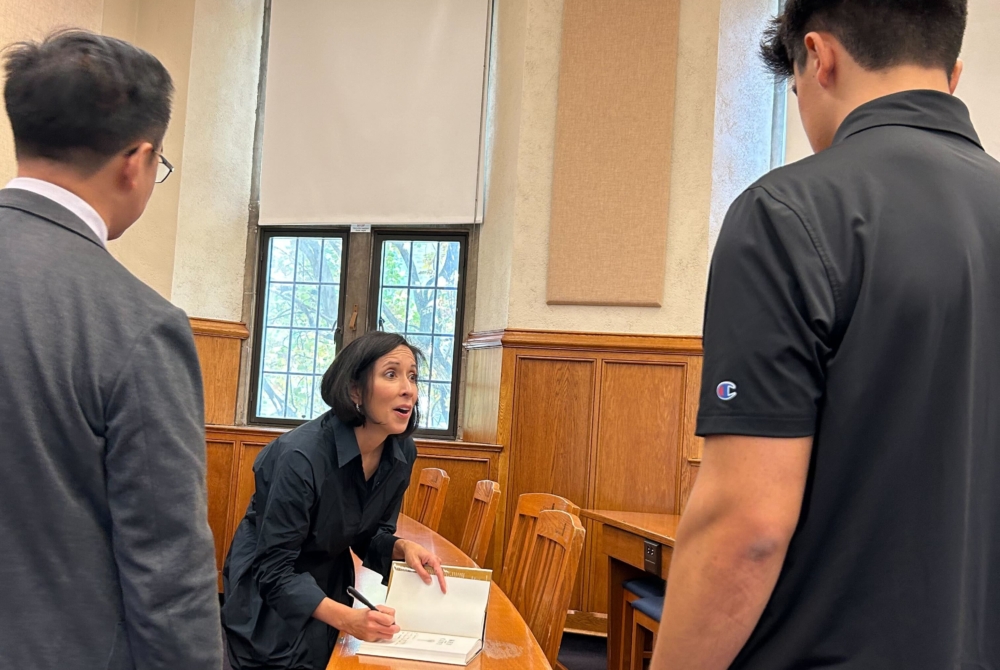
Sara Bronin signing a copy of her book for a student.